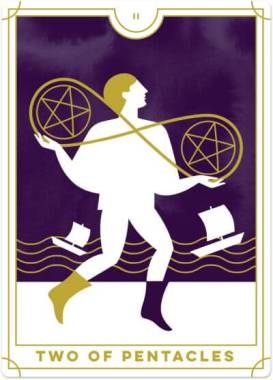Kurukulla, an enchanting and dynamic deity in tantric Tibetan Buddhism, holds a unique and multifaceted place in the rich tapestry of Vajrayana traditions.
As a manifestation of divine feminine energy, Kurukulla embodies the power of transformation, desire, and magnetism, making her a central figure in rituals and meditative practices.

At the heart of Kurukulla’s symbolism is her association with desire. Unlike conventional perceptions that often view desire as an obstacle on the spiritual path, Tibetan tantric traditions recognize its transformative potential.
Kurukulla’s depiction with a bow and arrow signifies her ability to captivate and direct desire towards spiritual awakening. In this context, desire becomes a force that can propel practitioners beyond mundane attachments and into the realm of higher consciousness.
The vibrant red color that envelops Kurukulla is not merely a visual choice but a symbolic representation of passion and magnetism. Red is the color of life force, the pulsating energy that animates all existence. As practitioners engage with Kurukulla’s imagery, they are invited to embrace their own desires, recognizing them as a natural and potent aspect of their spiritual journey.
In Tibetan iconography, Kurukulla often stands atop a lotus, emphasizing her transcendence over worldly attachments.
The lotus, with its roots in the mud and blossoms open towards the sun, mirrors the transformative journey from mundane existence to spiritual enlightenment. Kurukulla’s lotus throne serves as a reminder that, like the lotus, practitioners can rise above their circumstances through the alchemy of desire. She reminds us that in order to reach the heights of enlightenment we must first be rooted in the mundane world.
Kurukulla’s role as a magnetizing deity extends beyond personal transformation to encompass the magnetism of wisdom and compassion. Her enchanting presence is believed to draw forth the positive qualities of enlightened beings, amplifying the practitioner’s connection to the divine. Through invoking Kurukulla, practitioners seek to cultivate not only personal transformation but also a magnetic field of compassion and wisdom that can benefit all sentient beings.
In tantric practices, including those dedicated to Kurukulla, the erotic is seen as a potent force for spiritual awakening. Rather than suppressing or denying sexual energy, practitioners are encouraged to harness and transmute it into a tool for transformation.
The erotic, in this context, becomes a metaphor for the intense, all-encompassing passion that can propel individuals beyond ordinary states of consciousness.

The erotic, in tantric philosophy, is viewed as a sacred expression of the union of wisdom and compassion. The dance of passion becomes a vehicle for experiencing the interconnectedness of all things and dissolving the boundaries between self and other.
In tantric rituals dedicated to Kurukulla, practitioners may engage in visualizations that involve the union of male and female deities, symbolizing the integration of polarities within the individual psyche. The erotic imagery serves as a catalyst for transcending dualities and experiencing the divine union that lies at the core of enlightenment.
By embracing the erotic as a path to enlightenment, practitioners of Kurukulla’s teachings embark on a journey of profound self-discovery. The alchemical transformation of desire and the skillful integration of the erotic into spiritual practice become powerful tools for breaking through conventional boundaries and realizing the interconnected, non-dual nature of reality.
The path that Kurukulla represents is sometimes associated with the left hand path, as are many aspects of spirituality that are associated with desire or with the feminine.
As a result, some spiritual seekers shy away from Kurukulla and what she represents. I know that this was true for me when I first set out on the spiritual path. I was uncomfortable with many aspects of my self and my environment. I wanted to transcend reality, rather than embrace it.
When I speak of the erotic, I do so in the same way that Audre Lorde did when she said:
“The very word erotic comes from the Greek word eros, the personification of love in all its aspects – born of Chaos, and personifying creative power and harmony. When I speak of the erotic, then, I speak of it as an assertion of the lifeforce of women; of that creative energy empowered, the knowledge and use of which we are now reclaiming in our language, our history, our dancing, our loving, our work, our lives.”
The path of Kurukulla, and of the erotic in general, requires that we acknowledge all that is true on all dimensions of our being. It pulls us toward what is most true and alive within us.
I believe this is especially true in my experience as a woman. I have had the type of experience that is common for many women, in which we are encouraged to deny what is real for us in order to please or pacify those around us.
“For the erotic is not a question only of what we do; it is a question of how acutely and fully we can feel in the doing. Once we know the extent to which we are capable of feeling that sense of satisfaction and completion, we can then observe which of our various life endeavors bring us closest to that fullness,” Lorde writes.
It is in the fullness of that experience that true enlightenment is to be found. It is in embracing all the elements of our aliveness that we can experience what it truly means to reach the highest experience as a human being.
The goddess Kurukulla reminds us of this path toward an experience of the divine that we may choose to follow if we are brave enough and willing to do so.












